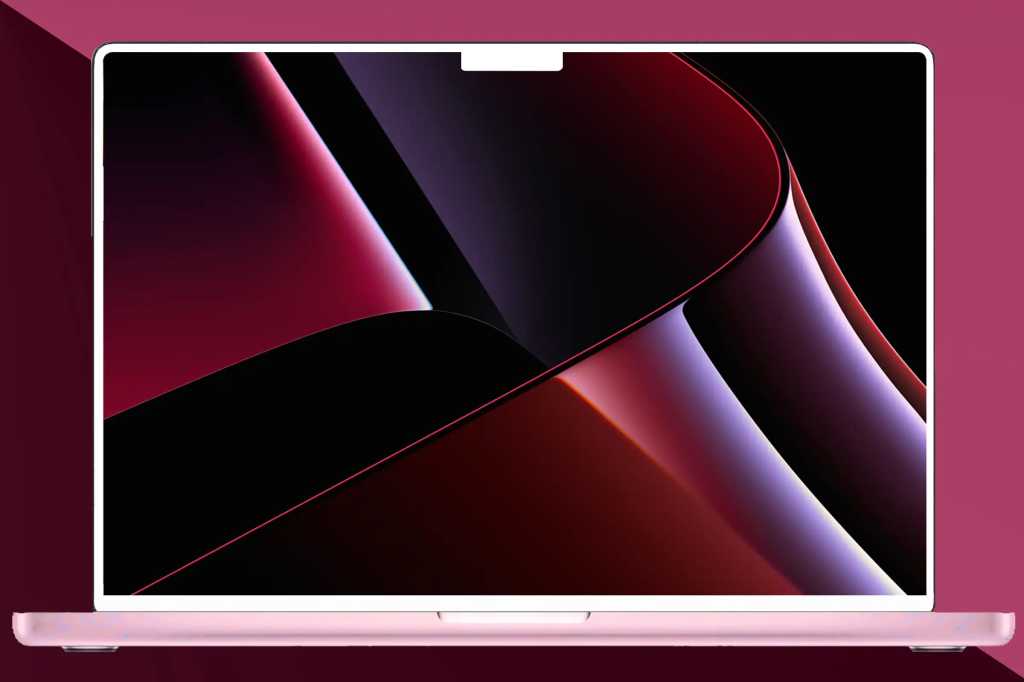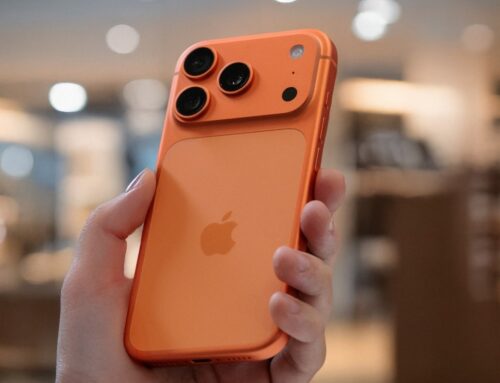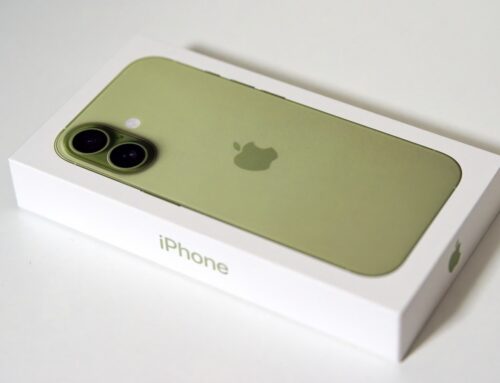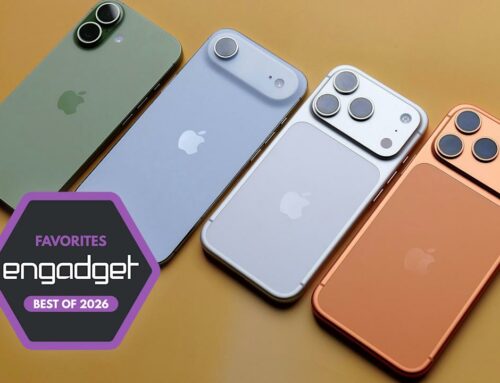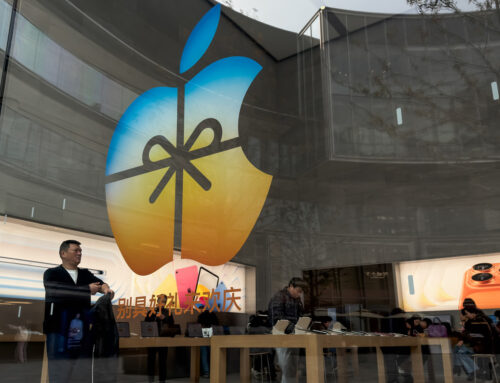It’s been over a year since the M1 MacBook Air made its impressive debut, and it’s still as great of a laptop as it was back then. But for all of the incredible advantages Apple silicon afforded, Apple didn’t really change much about the MacBook Air. But reports say that’s going to change. Apple is rumored to have big plans for its cheapest laptop, plans that could make the MacBook Air better than it’s ever been. Here’s are five big ways Apple is planning to change the MacBook Air and bring a huge dose of excitement to its entry-level notebook.
The M2 chip will bring a big performance boost
When the MacBook Air used Intel processors, we had to sacrifice some performance in order to have a laptop that prioritized portability. Then the M1 came along, and it also brought a significant performance boost—in most tests it’s actually as fast as the 13-inch MacBook Pro, a laptop that puts performance first.
When the next generation of Apple’s system on a chip, the M2, makes its debut, it will almost certainly be in the MacBook Air. According to Bloomberg, the M2 will have eight CPU cores, with four performance cores and four efficiency cores, just like the M1. The M2 will most likely be based on the same architecture as Apple’s A15 SoC in the iPhone 13, so if we use the A15 as an indicator of performance, the M2 could have a single-core performance increase of roughly 10 percent over the M1 and multi-core CPU performance increase of 20 percent. That’s a little bit better than an incremental boost percentage-wise and a tremendous jump compared to the Intel processors Apple used to use.
A major difference is that the M2 will reportedly have 10 graphics cores, two more than the M1. This is where we could see a more dramatic improvement. Again, using the comparable SoC in the iPhone, we saw speeds that were 40 to 50 percent faster than the iPhone 12’s A14 chip (which the M1 is based on) when compared with the A15-equipped higher-end iPhone 13 Pro and about 25 percent higher with the 4-core GPU in the iPhone 13.
Apple’s chips use less power than its Intel counterparts, so they don’t generate a ton of heat. Since the MacBook Air will almost certainly stick with its fanless design, when the temperature does start to climb, the chip will throttle down its performance to maintain a proper temperature. This throttling occurs when doing demanding tasks, like compiling code or rendering video. But the M2 MacBook Air will still be incredible powerful.
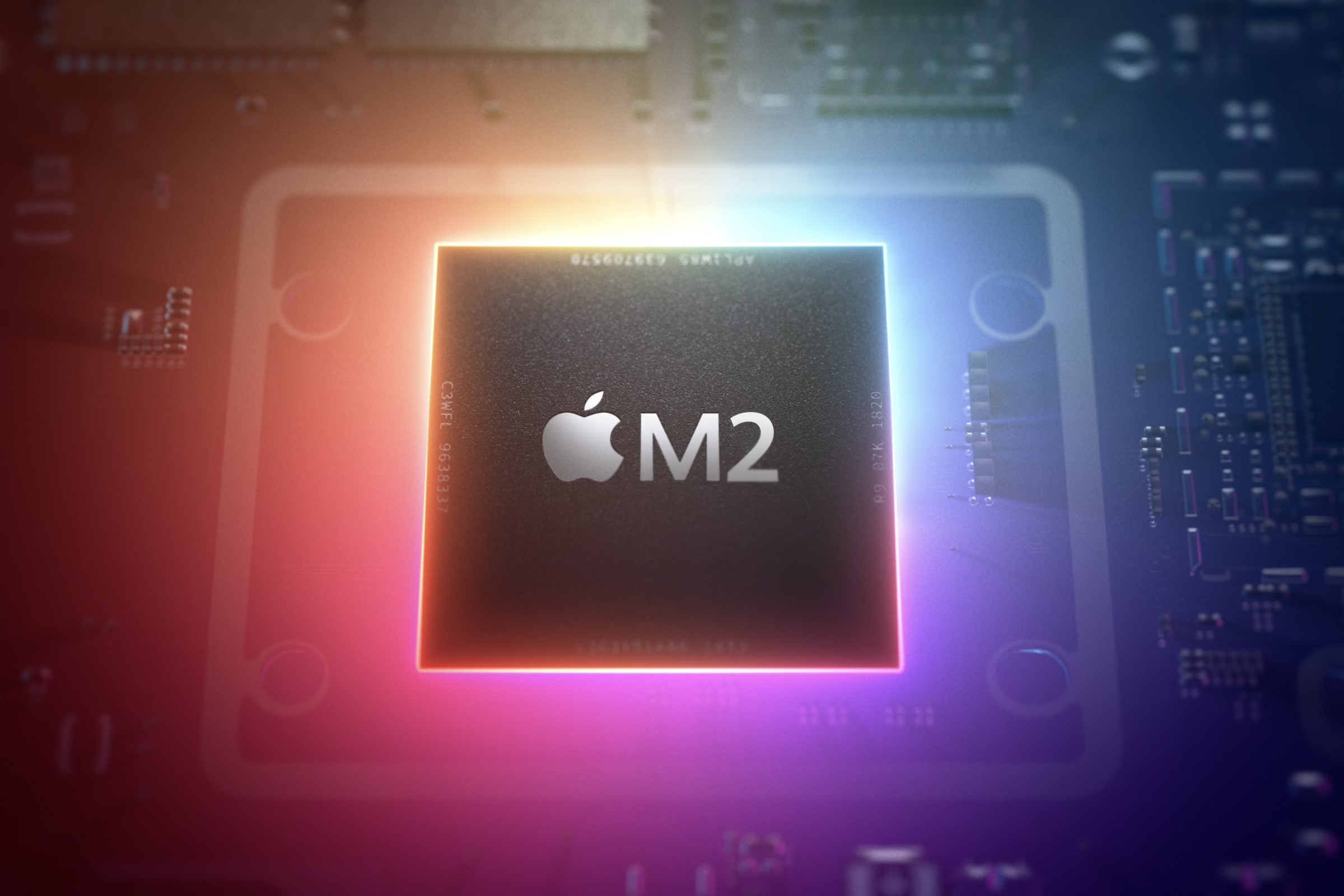
The next generation of Apple Mac chips will debut in the MacBook Air.
IDG
The design will be completely new
The tapered design of the MacBook Air could soon be history. Various reports have stated that the next model will have a uniform design like the MacBook Pro. But, staying true to its name, the MacBook Air will still be noticeably thinner and lighter than its pro sibling.
The MacBook Air will also reportedly take on the MacBook Pro’s display design as well, with thinner bezels all around. And they might not be black. Apple will reportedly also take a cue from the 24-inch iMac and bring white bezels and keyboard for the first time since the iBook. Rumors say it will also be available in different colors—possibly the same palette as the iMac. Apple used colors during the original iMac and iBook era to differentiate its consumer products and it looks like it will be continuing that retro feel.
A new look that combines the MacBook Pro with the iMac into a brand new laptop will be one of the most exiting design in years, as Apple breaks the mold it has used for many years and introduces a truly brand new notebook.
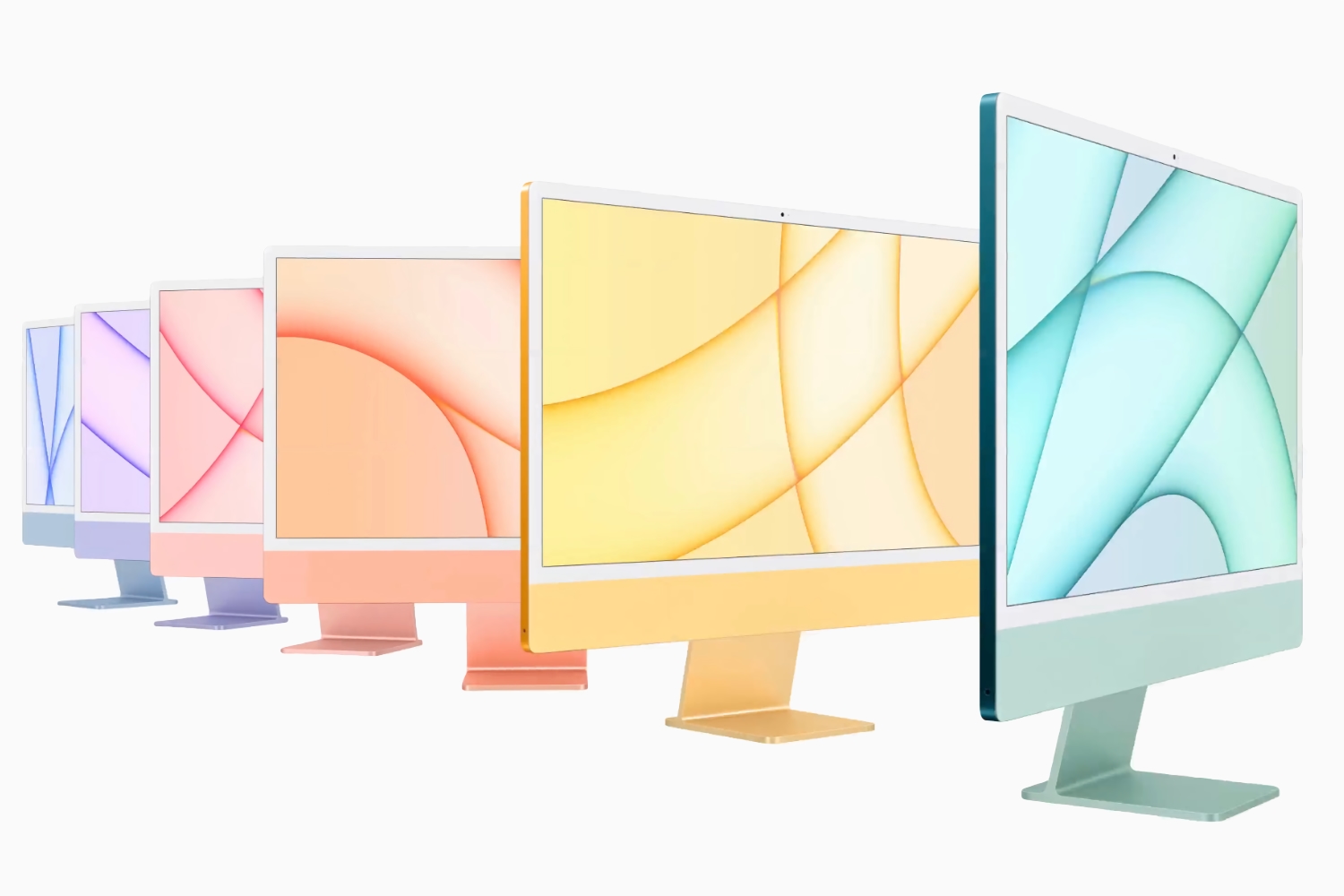
You might be able to buy a MacBook Air that matches your 24-inch iMac.
Apple
It’ll have a tremendous Mini-LED display
The current MacBook Air has a standard LED display that could be replaced in the next model with Mini-LED. Apple first used Mini LED in the iPad Pro and then it made its way to the new MacBook Pros. LED has been used in Apple’s MacBooks for such a long time the change will be very noticeable, with screens that are brighter and clearer than ever. And with Mini LED’s backlighting, you’ll see less light bleed and a better dynamic range of color.
The Mini LED displays of the new MacBook Pro feature 1,000 nits of sustained brightness (1,600 max), and a 1,000,000-to-1 contrast ratio, That’s a sizeable jump from the 400 nits brightness and a much lower contrast ratio (Apple doesn’t state this spec, but it’s been reported as about 900 to 1.) The size will likely stay the same size at 13.3-inches.
However, the MacBook Air’s Mini LED display will be missing one major feature that’s in the MacBook Pro: ProMotion. This feature lets the Mac adjust its refresh rate based on what’s displayed on the screen. On the MacBook Pro, the refresh rate can go as high as 120Hz, resulting in extremely smooth scrolling, animations, and video playback. Like the iPhone 13, ProMotion is reserved as a high-level feature for the MacBook Air.
But even without a high-refresh rate, the MacBook Air’s display will be a massive boost over the existing model’s display, which hasn’t received much of an upgrade in years.
Finally, a 1080p FaceTime camera
Nobody decides on a Mac model based on the FaceTime camera that it has. That’s probably why Apple has stuck with a subpar 720p FaceTime cameras for so long. However, there’s hope for the Air. Apple finally upgraded the FaceTime camera to an improved 1080p version in the 24-inch iMac and new MacBook Pros, and we should see the same camera in the next MacBook Air. If so, the MacBook Air will perform much better in lower lighting situations and produce a far better overall image.
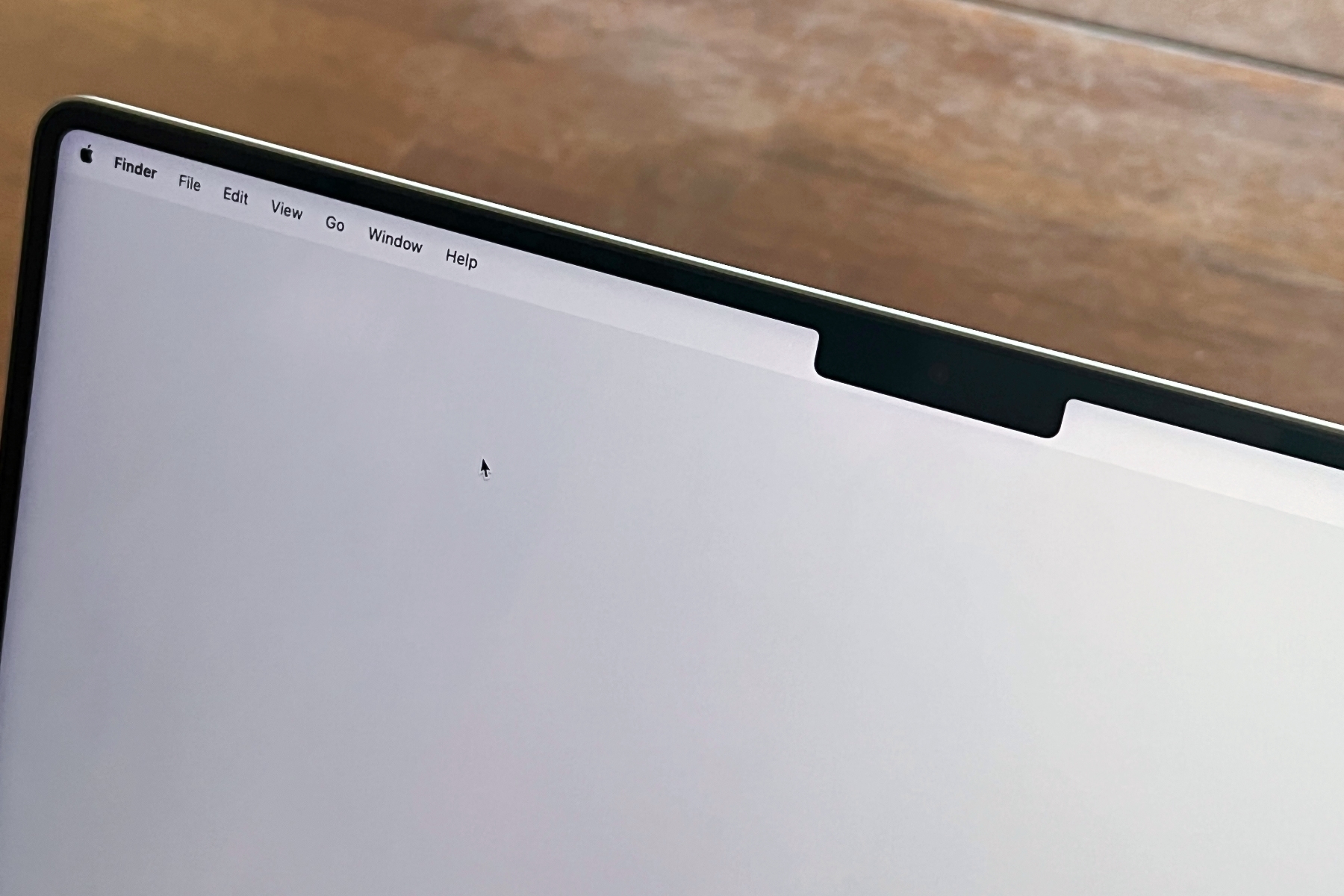
The notch is here to stay.
IDG
With skinny bezel, the MacBook Air will likely take on the notch that was introduced with the MacBook Pro. Apple wants to make the bezels as small as possible, and it actually promotes the notch as a benefit, creating more screen space so the menu bar is out of the way or the “workable” area. It’s also become a feature that’s instantly recognizable as an Apple one, which helps with brand recognition. With white bezels it might be a tougher sell, but it will also give the MacBook Air a unique character and identity unlike any other laptop on the market.
MagSafe makes a return
I wrote this article on an older MacBook, one that uses its Thunderbolt ports for charging. The upper right corner of the lid isn’t a smooth, rounded corner anymore. It’s misshapen because a while ago, I tripped over the power cable when it was plugged in, and the laptop crashed onto the floor, corner first. So I was very happy when Apple brought MagSafe back in the new MacBook Pro.
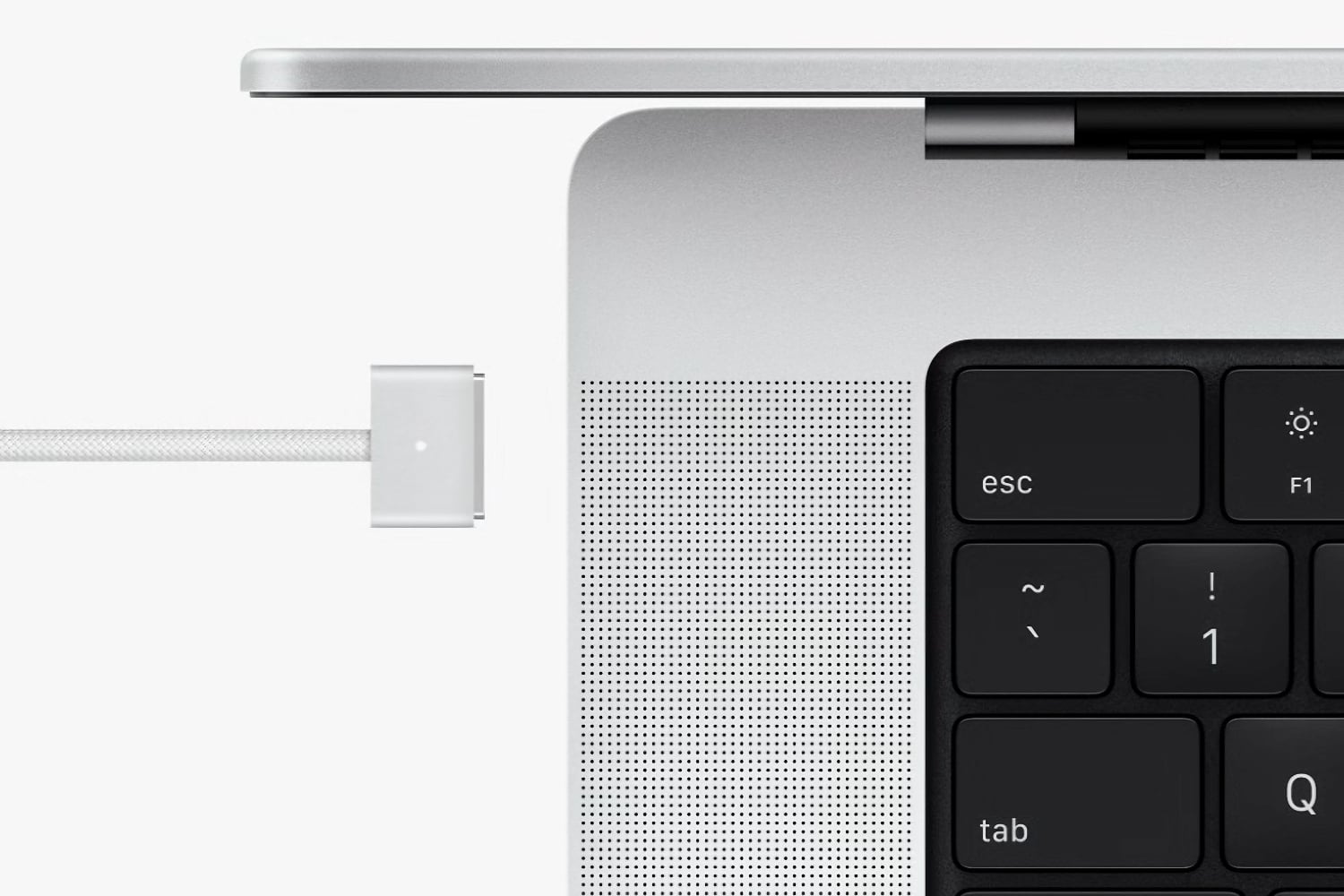
Apple
Reports say that Apple will include MagSafe in the next MacBook Air, which will save many a laptop from a similar fate as my MacBook. In case you’re unfamiliar, MagSafe is a magnetic connector that can disconnect if the cord is given a good tug. Apple introduced the feature on the original MacBook but decided to discontinue it in 2016.
We haven’t heard any rumors about the battery life, but we assume it’ll last as long as the current model, which is rated for 18 hours. It could also have fast charging through MagSafe and regular charging with a Thunderbolt port.
Note: When you purchase something after clicking links in our articles, we may earn a small commission. Read our affiliate link policy for more details.
Roman has covered technology since the early 1990s. His career started at MacUser, and he’s worked for MacAddict, Mac|Life, and TechTV.

